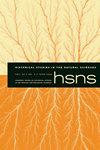20世纪早期的海洋科学外交
IF 0.3
3区 哲学
Q2 HISTORY & PHILOSOPHY OF SCIENCE
引用次数: 7
摘要
这篇论文是对2018年的一项呼吁的回应,该呼吁要求更好地理解以前的海洋科学外交实例如何有助于影响当今起草保护海洋生物多样性和保护海洋环境的新海洋法的努力。它通过分析20世纪初海洋科学早期科学外交努力的各种曲折、转折和挑战来解决这个问题。它依次探讨了定义和同意研究目标的问题,反向科学外交如何成为正式的政府外交,最后,科学外交如何使德国回到国际研究舞台,从而在20世纪20年代成功地实施了海洋保护措施。在此过程中,它认为,1902年国际海洋探索理事会的成立代表了一个革命性的时刻,在这个时刻,海洋的超国家科学研究、协调和保护政治首次出现;国际海洋探索理事会成为后来所有海洋科学外交的关键模式。本文是《科学外交》特刊的一部分,由朱莉娅·里斯波利和西蒙娜·图尔凯蒂编辑。本文章由计算机程序翻译,如有差异,请以英文原文为准。
Early Twentieth-Century Ocean Science Diplomacy
This paper is a response to a 2018 call for greater understanding of how previous examples of marine science diplomacy could help shape present day efforts to draft a new law of the sea that protects marine biodiversity and conserves the marine environment. It tackles this through analysis of the various twists, turns, and challenges of early science diplomacy efforts in marine science during the early twentieth century. It looks in turn at questions of defining and agreeing on research objectives, how backchannel science diplomacy can become official government diplomacy, and finally, how careful science diplomacy brought Germany back to the international research arena so as to successfully put in place marine conservation measures during the 1920s. In doing this, it argues that the foundation of the International Council for the Exploration of the Seas in 1902 represented a revolutionary moment where supra-national scientific research, coordination, and conservation politics for the ocean first emerged; with International Council for the Exploration of the Sea becoming a key model for all subsequent marine science diplomacy. This essay is part of a special issue entitled Science Diplomacy, edited by Giulia Rispoli and Simone Turchetti.
求助全文
通过发布文献求助,成功后即可免费获取论文全文。
去求助
来源期刊

Historical Studies in the Natural Sciences
社会科学-科学史与科学哲学
CiteScore
1.00
自引率
0.00%
发文量
24
审稿时长
>12 weeks
期刊介绍:
Explore the fascinating world of Historical Studies in the Natural Sciences, a journal that reveals the history of science as it has developed since the 18th century. HSNS offers in-depth articles on a wide range of scientific fields, their social and cultural histories and supporting institutions, including astronomy, geology, physics, genetics, natural history, chemistry, meteorology, and molecular biology. Widely regarded as a leading journal in the historiography of science and technology, HSNS increased its publication to five times per year in 2012 to expand its roster of pioneering articles and notable reviews by the most influential writers in the field.
 求助内容:
求助内容: 应助结果提醒方式:
应助结果提醒方式:


